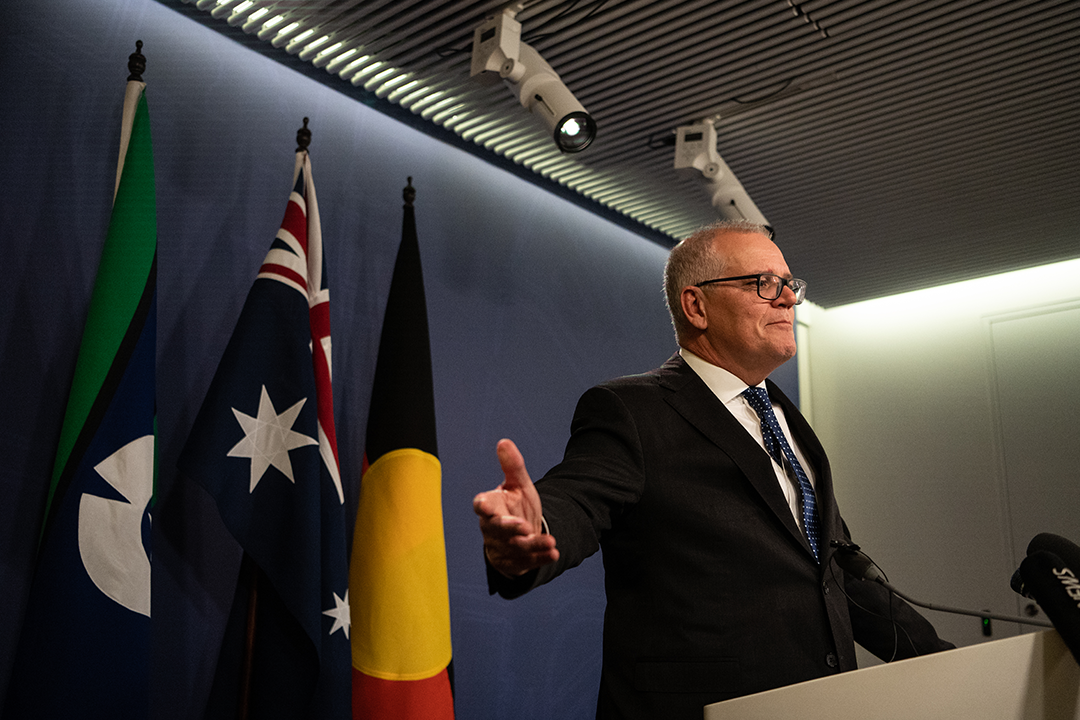

The court of public opinion is the closest thing to a kangaroo court presided over by a hanging judge that I’ve ever seen. And the experience of our passing parade of political leaders of recent times easily justifies my claim.
Need a memory jog? Try Scott Morrison and his current public prosecution. Then we had:
And that’s just the local losers in the court of public prosecution.
In all cases, the public had a lot to say and once thought to be potentially good leaders saw them tagged as either “hopeless” or as someone whose use-by-date has passed.
These thoughts came to me as I prepared a leadership speech for the great Aussie business, started by a Kiwi called Peter Duncan. That business is Pirtek, a name you often see on racing cars, footie teams and stadiums, but its real business is industrial piping, which has taken the operation to the UK and US.
Like its leader, this is a quiet, high achiever and it was not surprising that Peter and his CEO Steve Dutton wanted to help their key people understand what they can do to boost their leadership skills because leadership is so crucial in many aspects of life from business to politics to sport and even families. And so many of us, like our politicians, are hopeless at it.
Why? Because it’s easier said than done.
I actually kicked off my speech talking about Barack Obama and how he engineered his way to the top of the US political tree, defying the odds as a black man, and he was actually able to finish without the court of public opinion giving him the heave-ho. He admits to once not knowing the people he sought to lead and that what he learnt at Harvard as a top law student ran second to what he learnt at the coalface in his early days as an inexperienced leader in community service in the poor suburbs of Chicago.
John Maxwell in his great book, The 21 Irrefutable Laws of Leadership says you can learn leadership and I agree. Books like his help you be objective about your strengths and weaknesses, but you still need to try out and practise leadership because the people you try to lead can teach you a real lot.
In my first year of school teaching, before going on to lecture economics at UNSW, I had an unruly class and so I kept the whole class in at lunchtime. A guy in the class, Steve Box, who was a champion runner, came up to me and respectfully told me that group punishment meant the good students got no reward for being good.
After that lesson I went after public enemies, number one, and recently at a football reunion one of my ex-students — Nathan — reminded me that I kicked him out of the class for an entire term, and I made him stand at the door of the class, so he’d still get the lessons.
He reminded me that he topped economics that year! And while it seemed like bad leadership from me, it did him a power of good and I guess many of the students he might have distracted benefitted from my questionable leadership tactics.
Joe Hockey recently addressed a Business Sydney gathering and made the point that many leaders get tipped out, especially at elections, because of hubris.
He cited ScoMo and even John Howard with his WorkChoices move, Paul Keating and his many acts of hubris as PM, Boris Johnson and so on, with the excessive self-confidence that goes with hubris, ultimately putting these one-time successful leaders out of touch with the people they were supposed to be leading.
Jim Collins' outstanding book, Good to Great noted that leadership best explained the performance of the US’ best companies he analysed and generally the leaders were good listeners, deep thinkers and great role models.
Of course, political leadership has become so much harder in the Internet era with the likes of Twitter and Facebook being platforms for the court of public opinion to be more influential than ever before.
There are few places to hide for flawed leaders and they no longer have the potential protection of media moguls and friendly editors as they did before iPhones with cameras and video capabilities became attached to everyone’s hands.
It means our leaders simply have to be better leaders and let me tell you, as we’ve seen with high achievers such as Malcolm Turnbull and Boris Johnson, it’s easier said than done.
That said, getting on top of hubris has to be a good start, and given the importance of leadership to businesses and economies, as well as even for families, it’s something all of us should be striving to get better at.
By the way, Maxwell actually argues the best leaders have a very big commitment to self-improvement and so he often asks his audiences, as I did with the Pirtek team: “What’s your plan for self-improvement?”
If a leader doesn’t have one, he or she has probably been seduced by the self-destructive madness called hubris.